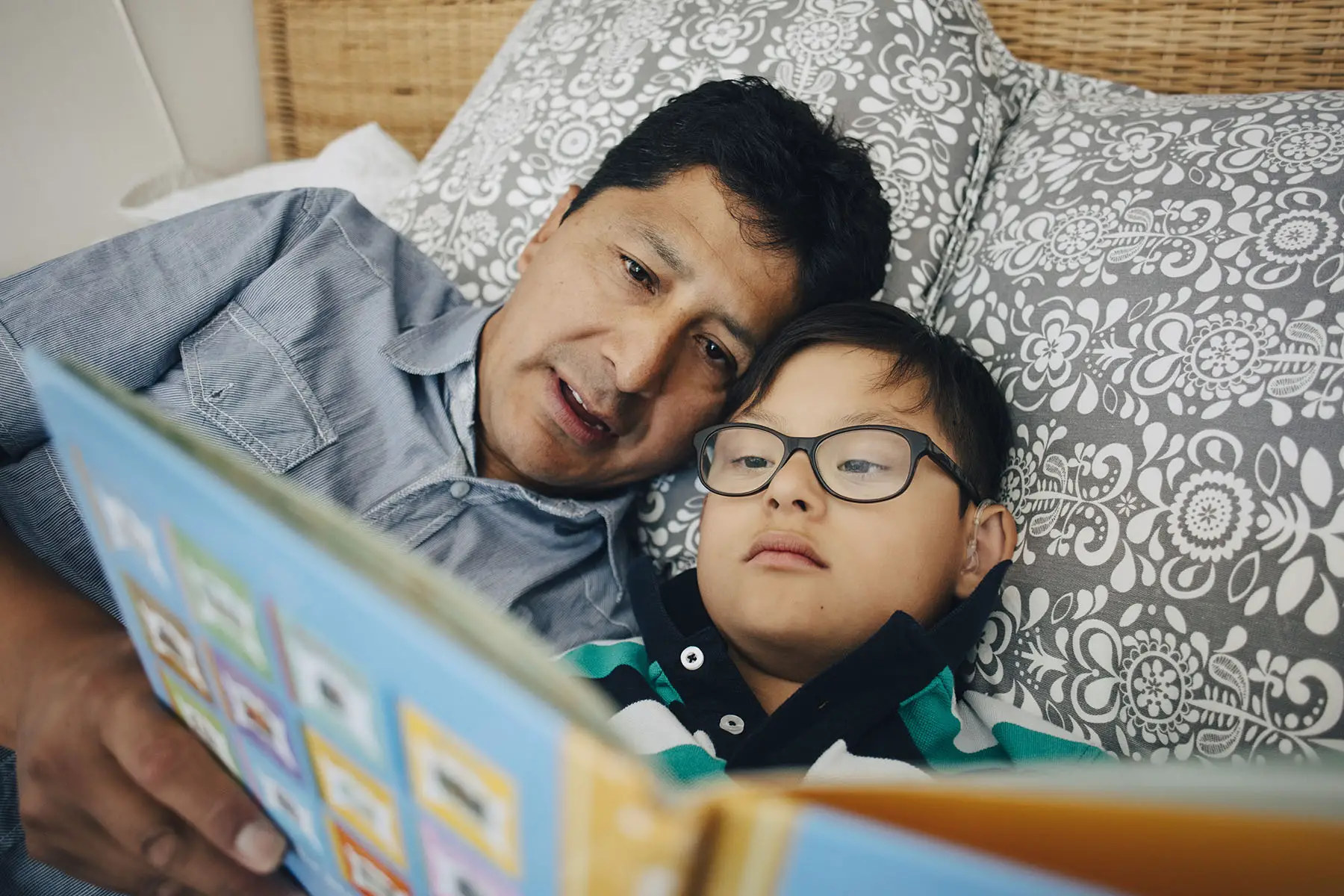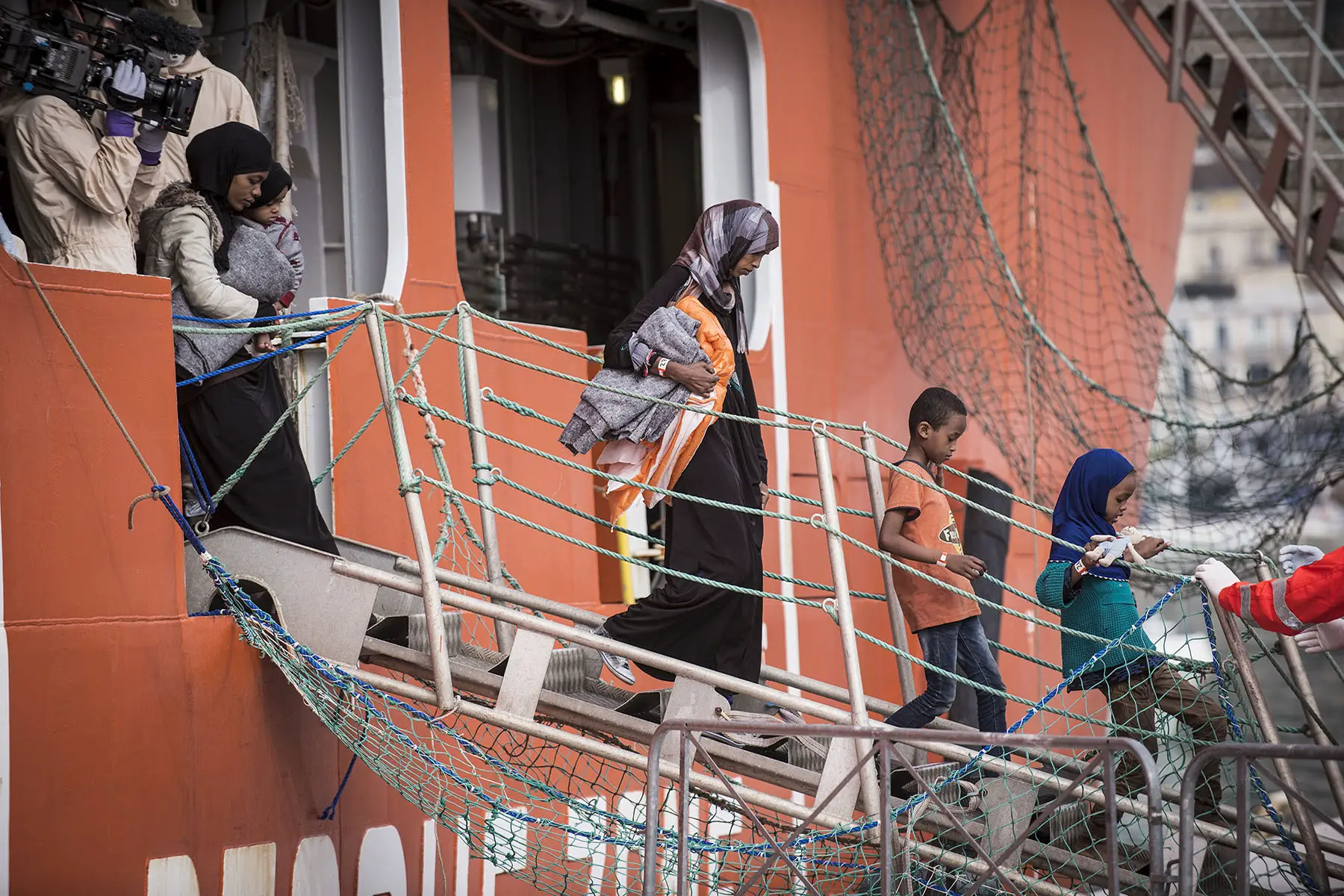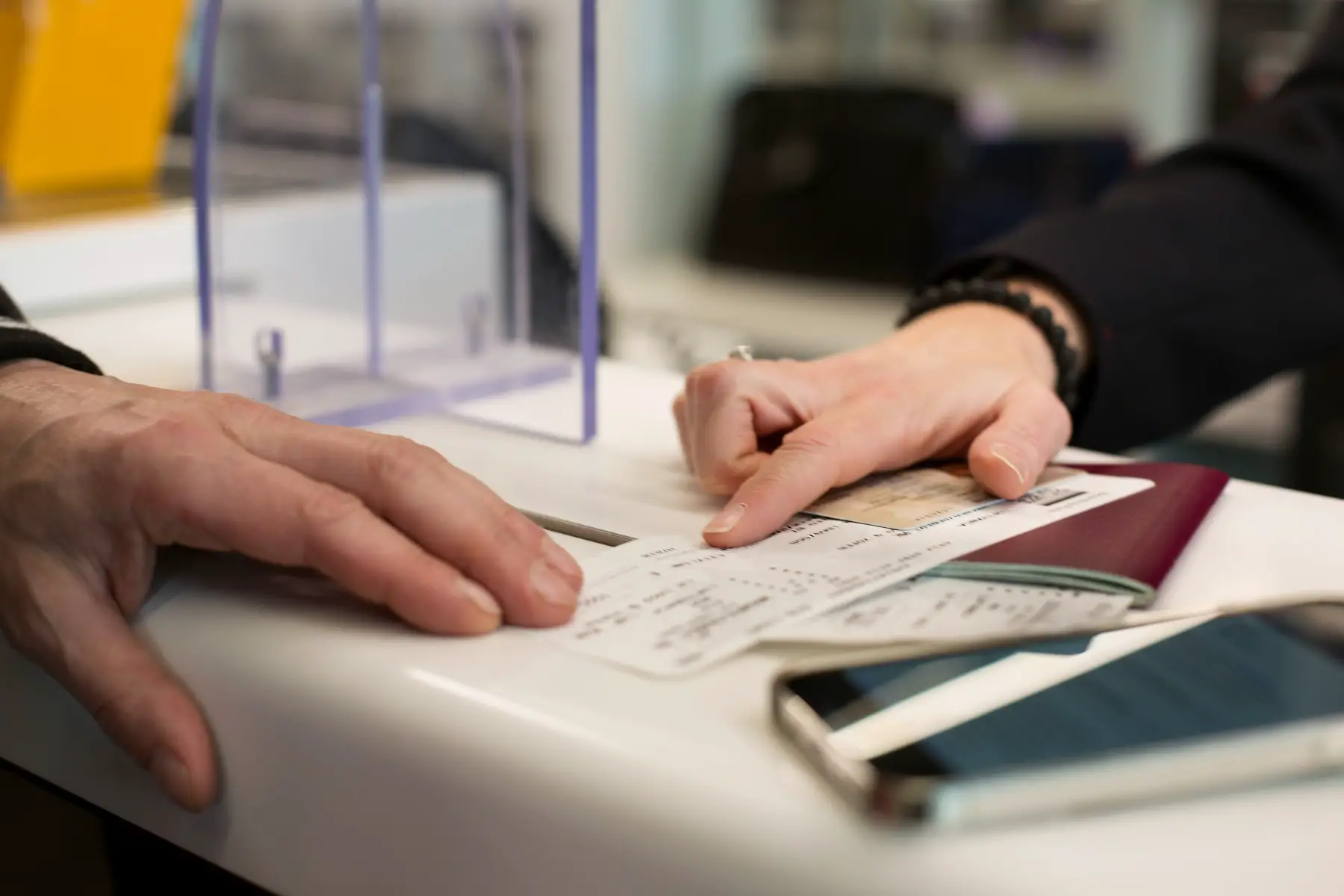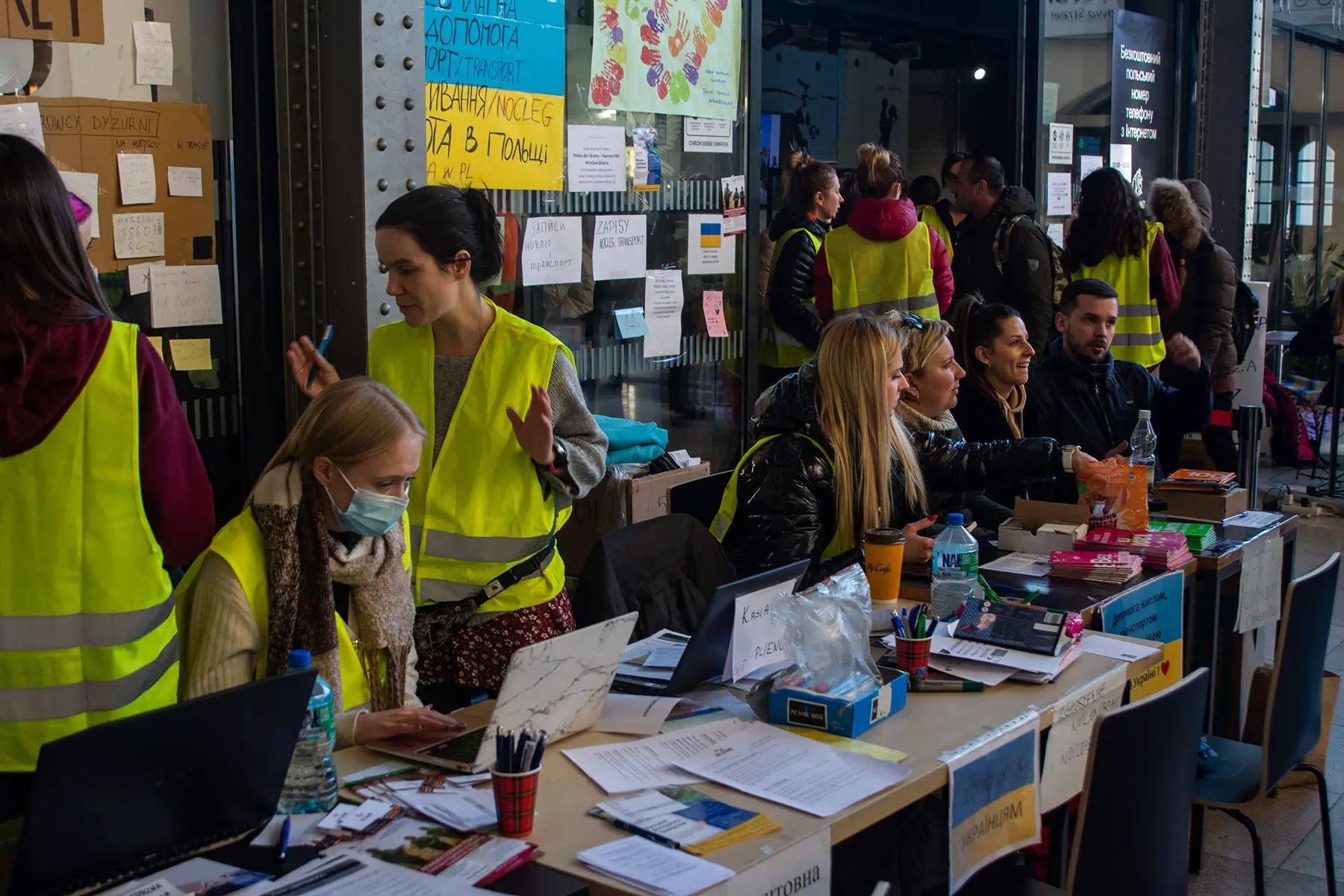In Italy, la famiglia é tutto (family is everything). So, whether you’ve just moved there to work or earn your degree, or you already have Italian citizenship, inviting your family members to join you only shows how well-integrated you are into Italian culture.
Selected relatives can join you in Italy on a family visa depending on their nationality. Discover more about this immigration topic – including the requirements and how to apply – by reading the following sections:
- Family visas in Italy
- Who can move to Italy on a family visa?
- Family members of EU/EFTA citizens
- Relatives of non-EU/EFTA nationals
- Short-term visits to family members in Italy
- Joining relatives who have a temporary visa
- Family visas for refugees or asylum seekers
- After your family members arrive in Italy
- In the event of divorce or death
- Visa complaints and appeals
- Useful resources
Moving2Italy
When relocating to Italy, get expert help from Moving2Italy on taxes, work permits, and setting up a business. They also provide personalized support for immigration, social security, and residence, helping you navigate your new life abroad. For assistance with fiscal and immigration matters, contact Moving2Italy.
Family visas in Italy
One of the main reasons why people immigrate to Italy is to reunite with close relatives already living in the country. In 2021, almost 123,000 family visas (visto per ricongiungimento familiare) were issued, which is just over half (50.9%) of all visas. Other permits included work visas (21.1%), study visas (7.3%), and visas for refugees (12.8%).

You can ask selected relatives to move with you to Italy if you have a residence permit for at least a year. While it is fairly easy to obtain this particular visa, not all family members qualify. It all depends on their nationality and the nature of your relationship.
The family visa comes with a few requirements as well. For example, if your relative is staying in Italy for more than one year, they are required to sign the country’s Integration Agreement (Accordo di integrazione). This means they promise to:
- Learn to speak Italian to at least A2 level
- Gain sufficient knowledge of the fundamental principles of the Constitution of the Republic
- Get familiarized with the civic culture and civil life (particularly with the sectors of health, education, social services, and work and tax obligations)
This also applies to family members who are over 65 years of age.
All visas and residence permits fall under the responsibility of the Ministry of the Interior (Ministero dell’ Interno).
Who can move to Italy on a family visa?
EU/EFTA nationals
Italy is a member state of the European Union (EU) and allows freedom of movement between all other countries. As such, relatives from within that region only need a valid passport or ID to move to Italy.
Likewise, citizens from Iceland, Liechtenstein, Norway, and Switzerland don’t need a visa to settle in the country. These nations belong to the European Free Trade Association (EFTA) and are often regarded as regular EU member states.
If your EU/EFTA family member plans to stay for longer than three months, they must enter the civil registry (anagrafica) with their local municipality (comune). They’ll also be required to register with Italy’s National Health Service (Servizio Sanitario Nazionale – SSN).
Third-country citizens
Nationals from outside the EU/EFTA region (i.e., third countries) typically need a visa to stay in Italy.

An exception is made for certain nationalities – including Australia, Brazil, Canada, Japan, the UK, Ukraine, and the US – who are staying for less than 90 days. If the visit lasts longer, they do need a visa.
You can check your exact requirements on the Italian government visa portal.
UK nationals since Brexit
Brexit has had many (unintended) consequences for expats from the United Kingdom (UK). One of these is that it no longer has the rights of an EU member state. That means that UK nationals must apply for a visa if they want to travel to or live in Italy for more than 90 days.
British citizens already living in Italy before 1 January 2021 could benefit from the Brexit Withdrawal Agreement. This allows them to stay in Italy without a visa or residence permit. Family members of these UK nationals are also covered by the Withdrawal Agreement if their relationship existed before 1 January 2021. In other words, these relatives don’t need a family visa to move to Italy.
You can find more information on the website of the UK government.
Family members of EU/EFTA citizens
If you are an EU/EFTA national living in Italy, you can invite selected family members to move to Italy on a family visa of an EU citizen (visto per motivi familiari – familiari di cittadino ue). Requirements for you (the sponsor in Italy) include that you:
- Have sufficient resources to ensure you and your relative do not become a burden on the social security system (e.g., you are retired)
- Are working as a salaried or self-employed person
- Are enrolled in a public or private institution for studying or training and have sufficient economic resources to support yourself and your relative
You are also required to get sufficient health insurance to cover all risks and have suitable accommodation to host your family member.
Who can apply?
Italy only grants the visa to a handful of family members.

Eligible relatives include:
- Spouse, registered partner, or longtime partner over the age of 18 with whom you have a demonstrable relationship
- Minor (step)children under the age of 21
- Dependent adult children over the age of 21 who cannot provide for their own needs due to serious health reasons that include total disability
- Dependent parents (in law) who have no other relatives in their home country
- Dependent parents (in law) over the age of 65, if their other children are unable to support them due to documented serious health reasons
Visa length and entitlements
The family visa in Italy is valid for one year. Depending on the length of their stay, your relative must for a temporary residence permit or long-term residence card for EU relatives (carta di soggiorno per familiare di un cittadino dell’Unione Europea). Because the visa is tied to the residence permit, your family member doesn’t have to renew the visa after it expires. However, residence permits do have to get renewed.
The permit allows your family member to work and study in Italy. Access to public healthcare will depend on social security contributions made through your or their job.
After five years of legally residing in Italy, they can apply for a permanent residence permit.
How to apply
Your relative can file a visa application at the Italian embassy or consulate in their home country. It usually takes one or two months to process, but can, in certain circumstances, take up to three months. It is therefore advisable to apply with plenty of time to spare.
They’ll need to provide the following:
- Completed visa application form (in Italian)
- One recent passport photo
- A valid passport or travel document that is valid for at least three months longer than the requested visa
- Declaration file from you (the sponsor) that includes:
- Formal invitation for your relative to join you in Italy
- Your valid passport or ID
- Your residence permit
- Proof of relationship (e.g., marriage certificate)
- If necessary, a certificate of health from your relative or a dependent family member
- Proof of employment or study (e.g., a job contract (contratto di soggiorno per lavoro))
- Proof of sufficient income
- In the case of minor children, a letter of consent from the other parent
Within eight days of their arrival, your family members must register with the municipality they’ll reside in.

They will also need to apply for a residence permit for family reasons (permesso di soggiorno per motivi di famiglia). For this process, you can check the Expatica article on visas and immigration in Italy.
Visa costs
The family visa cost €116. There will be additional costs for the residence permit:
- A little over €76 for the application
- An extra €40 – 100 for the actual permit
Any payment needs to be made at the point of application. You can find more information on the Italian government visa portal.
Relatives of non-EU/EFTA nationals
Third-country citizens living in Italy can also invite selected family members to join them on a family visa. The same requirements as for EU/EFTA nationals apply. You must either:
- Have sufficient resources to not burden the social security system
- Be employed (either salaried or self-employed)
- Be enrolled in a public or private institution for studying or training and have sufficient economic resources to support yourself and your relative
You are also required to have health insurance and suitable accommodation to host your family member.
Who can apply?
Eligible relatives include:
- Spouse, registered partner, or longtime partner over the age of 18 with whom you have a demonstrable relationship
- Minor (step)children under the age of 21
- Dependent adult children over the age of 21 who cannot provide for their own needs due to serious health reasons that include total disability
- Dependent parents (in law) who have no other relatives in their home country
- Dependent parents (in law) over the age of 65, if their other children are unable to support them due to documented serious health reasons
Visa length and entitlements
The family visa in Italy is valid for one year. Because the visa is tied to the residence permit, they don’t have to be renewed when it expires. Residence permits do have to get renewed. These are valid for the same duration as your permit.

Your family member is allowed to work and study in Italy. Access to public healthcare will depend on social security contributions made through your or their employment.
After five years of legally residing in the country, they can request a permanent residence permit.
How to apply
You (the sponsor in Italy) must first apply for entry clearance for family reunification (nulla osta al ricongiungimento familiare). You can do so at your local immigration office (Sportello Unico d’Immigrazione – SUI), and it can take up to 180 days to process.
After that, the application process is the same for relatives of EU/EFTA nationals. Your family member can file a visa application at their Italian embassy or consulate and it can take between one to three months to process.
They’ll need to provide:
- Completed visa application form (in Italian)
- One recent passport photo
- A valid passport or travel document that is valid for at least three months longer than the requested visa
- Declaration file from you (the sponsor) that includes:
- Formal invitation for your relative to join you in Italy
- Your valid passport or ID
- Your residence permit
- Proof of relationship (e.g., marriage certificate)
- If necessary, a certificate of health from your relative or a dependent family member
- Proof of employment or study (e.g., a job contract)
- Proof of sufficient income
- In the case of minor children, a letter of consent from the other parent
Your relative must register with their new municipality and apply for a residence permit for family reasons within eight days of their arrival.
Visa costs
The cost of a family visa is €116. There will be extra costs for the residence permit.

Additional fees include:
- A little over €76 for a residence permit application
- An extra €40 – €100 for a residence permit
For more information, you can visit the Italian government visa portal.
Short-term visits to family members in Italy
If your relative is traveling to Italy for a short visit, they can apply for a short-stay Schengen C Visa. This visa is valid for 90 days during any 180-day period. Standard costs are €80 for adults and €40 for minor children under the age of 18. Certain nationalities are eligible for discounts or fee waivers.
Your family member can also ask for a short-stay Schengen multiple entry visa. This is the same as the standard short-stay visa, but the 90-day visiting period can be split over periods of one (C1), three (C3), or five years (C5) instead. More details are available at the Italian embassy or consulate.
Joining relatives who have a temporary visa
Those on a temporary residence permit that is valid for more than a year, can also request certain family members to join them in Italy. Your relative’s residence permit will be valid for the same duration as your permit. Costs and processes are the same as outlined above.
Family visas for refugees or asylum seekers
Refugees and those with subsidiary protection can ask selected family members to join them in Italy. Unaccompanied asylum-seeking minors have the right to bring their parents or legal guardians over, regardless of age or health status. Those with special protection status can apply for family reunification if their residence permit is valid for at least one year.

The requirements and application process are the same as outlined above. That means that if you are from a country outside the EU/EFTA region, you must first apply for entry clearance. After that, your family members can apply for a visa at their local Italian embassy or consulate.
If you are a refugee in Italy and you have family members seeking asylum in another EU country, you don’t have to wait to apply for a family visa due to the EU Dublin Regulation.
After your family members arrive in Italy
All foreign nationals must register with the local municipality they’ll be staying in. Third-country relatives must also apply for a residence permit within eight days of their arrival.
If your family members intend to make Italy their long-term or permanent home, they should also apply for an Italian tax number and register with the National Health Service. Other things they might consider doing:
- Opening a bank account
- Buying an Italian SIM card
- Getting or exchanging a driver’s license
In the event of divorce or death
A change in family setup does not necessarily mean that your relative loses their residency rights in Italy. For example, in the event of divorce or your death, your spouse or partner can update or convert their residence permit, depending on the situation.
If your marriage didn’t work out, your spouse can stay in Italy when:
- You were married for at least three years and they have been living in Italy for at least one year
- Your partner has custody of the children and wants to stay in Italy
- Your partner doesn’t have custody of the children but a judge has awarded them visitation rights in Italy
- You have been charged or found guilty of familial crimes (e.g., domestic abuse)
In these instances, your family member will need to have a job or sufficient income to support themselves and any children living with them.

In the event of (your) death, your relative can continue to live in Italy by converting their visa to a work visa or study visa. If they have legally resided in the country for more than five years, they can apply for a permanent residence permit.
Visa complaints and appeals
If your family visa application was denied and you disagree, you can request that your embassy or consulate reconsider within 60 days. The decision will list the reason for refusal, so you often only need to provide additional documents.
However, if the visa was denied again, you can lodge an appeal with the competent Ordinary Court (Tribunale Ordinario). There is no time limit to the appeal, though keep it within a reasonable time frame (i.e., not after 20 years). The Court will issue a decision within 30 days.
If your family visa was denied again, you can take it to the Court of Appeal (Corte d’appello) and, finally, the Supreme Court of Cassation (Corte Suprema di Cassazione).
Useful resources
- Immigration Portal – information on visas and residence permits, including a portal where you can register and manage applications
- Ministry of Foreign Affairs and International Cooperation (Ministero degli affari esteri e della cooperazione internazionale) – Italian government website with information on visas including a visa search portal where you can find out which visa you may need for Italy
- Ministry of the Interior – Italian government ministry responsible for immigration, visas, and residence permits
- Poste Italiane – website of the Italian post service with more information about residence permits
- State police website (Polizia di Stato) – information on visas and residence permits







